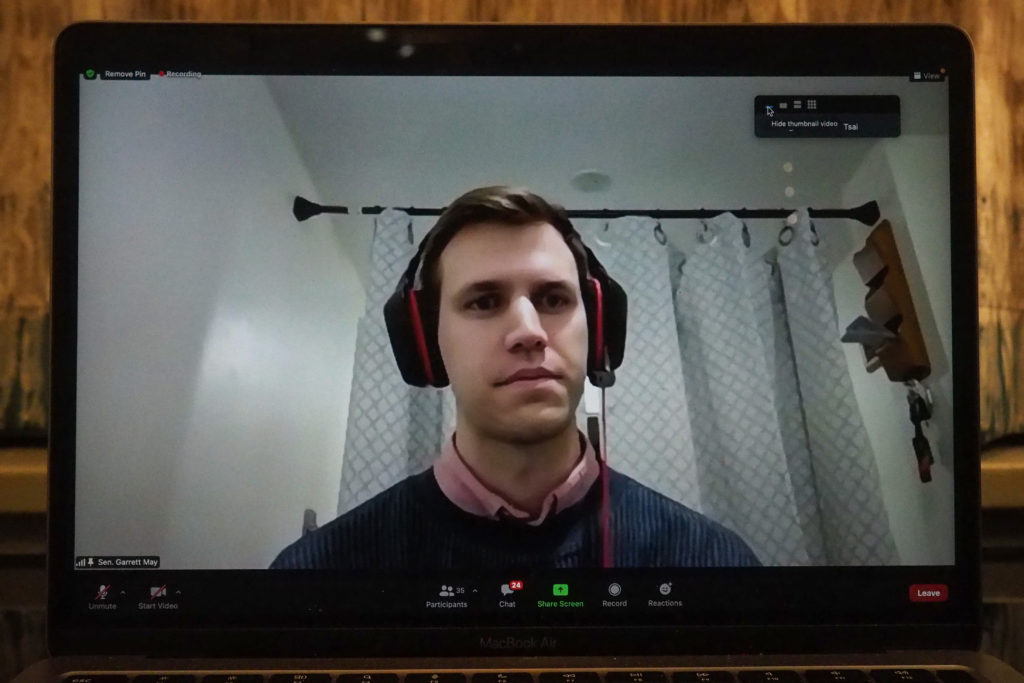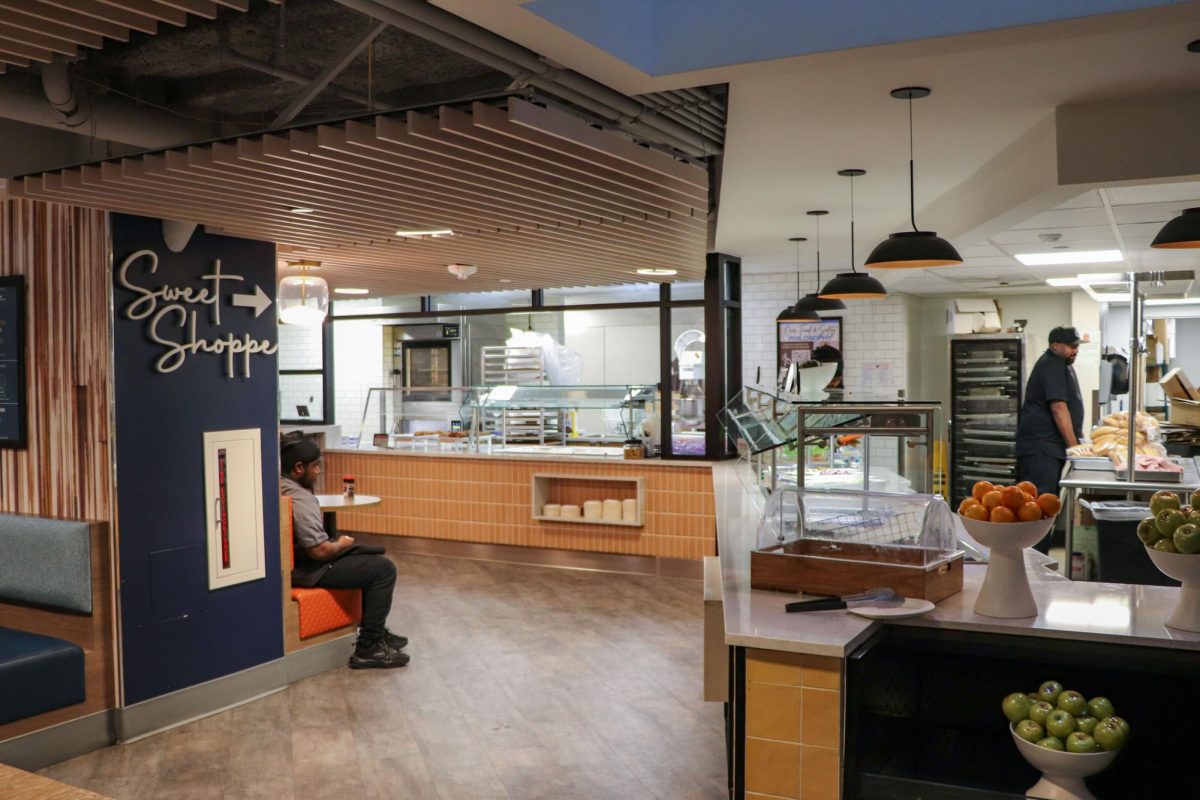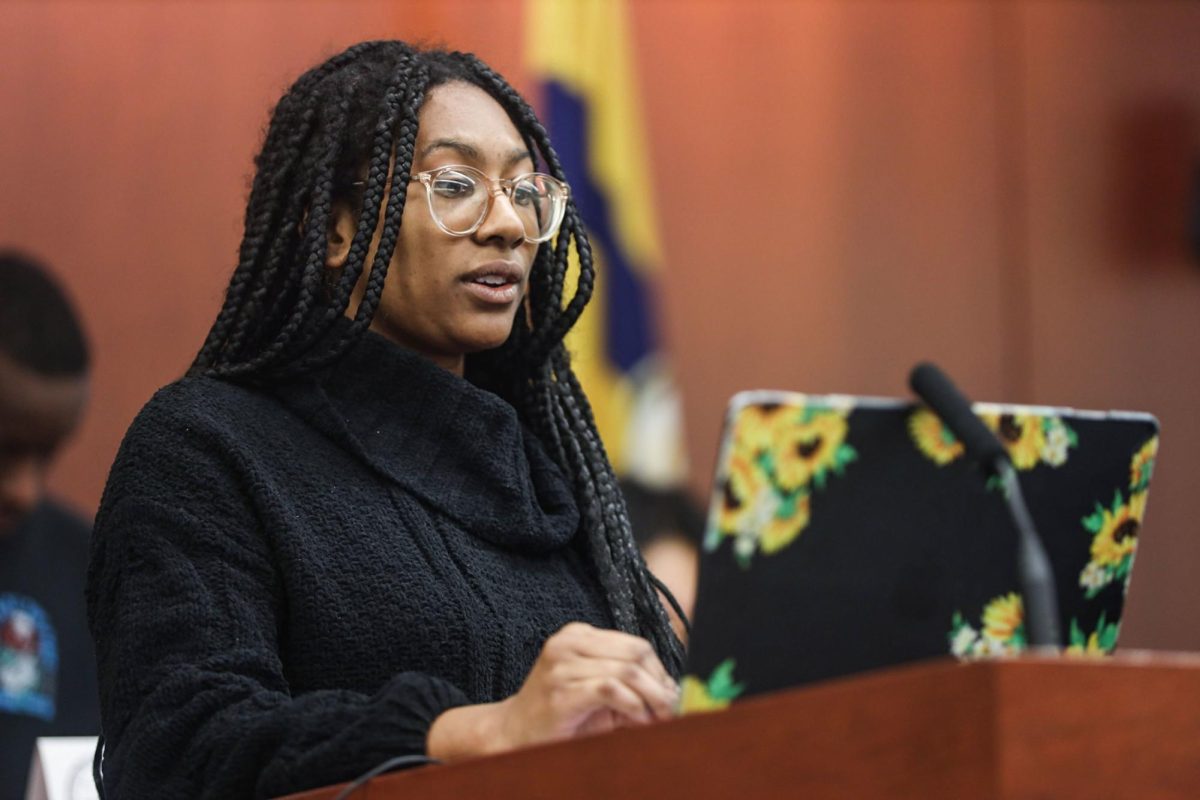The Student Bar Association Senate rejected a bill at its meeting Tuesday to launch an audit examining online service outage protocol after GW Law’s “MyLaw” platform suffered a cyberattack last month.
Officials restored service on the MyLaw platform earlier this month after the outage disrupted law students’ final exams and potentially compromised information including GWIDs, course schedules, academic and degree programs, faculty office locations and office phone numbers in December. The Online Portal Outage Protocols Audit, which first-year law student and SBA Sen. Garett May sponsored, called on Law School Dean Dayna Bowen Matthew to submit an audit before spring final exams to disclose protocols that officials implemented or should establish to handle digital platform failures.
The senate failed to pass the bill with a minimum two-thirds majority because some senators found it “unnecessary” to request the audit in the form of legislation. Senators can usually pass legislation with a simple majority, but the two-thirds rule was in place because the bill was submitted to the senate past the deadline.
“The internet outage, as a result of a cyber attack, upended finals week for so many students as we all know, we were there,” May said at the meeting. “And this is trying to not so much pin down who to blame but just to answer questions that I, and I assume others, have, such as was there a plan in place before this happened, or what do we do when critical internet-hosted school infrastructure goes down?”
The University’s online time reporting system for employees, Kronos, also shut down after a second cyberattack potentially compromised employees’ information in mid-December.
Senators who opposed the bill said it demanded too much from the University, and the SBA could send officials an email to ask questions instead of urging them to release an audit.
SBA Sen. Pat Bruny said senators could send the questions through email because it would “facilitate dialogue” with administrators, like discussions he had with Matthew about the MyLaw outage in the wake of the cyber attacks last month. He said Matthew was open to talking about the situation, so he is unsure if the legislation was necessary.
“I don’t oppose it, but I’m still on the fence of whether or not this official bill was needed,” Bruny said.
The senate also passed a bill approving a survey that the senate will send to faculty and administrators for feedback on holding virtual or take-home exams next semester instead of the “traditional” in-person proctored model. The bill states that law students have grown accustomed to taking exams online and at home instead of during in-person class, and it asks faculty to share the testing formate that they prefer.
Senators also approved a nearly $300 ad hoc financial request to the Space Law Society, a student organization that promotes the discussion and expansion of space law. The Space Law Society will use these funds for three separate events, including a general body meeting, a career panel and a documentary night.
SBA President Jordan Michel said he vetoed the senate’s Spring 2022 Community Town Hall Act for the second time this month, rejecting plans to schedule at least one student-run town hall in the first four weeks of the spring semester for students to discuss “stories of struggle” at GW and policy suggestions for the SBA. He said he vetoed the bill again because “direct engagement and advocacy,” like holding office hours, is more effective than a town hall.
Senators voted to send the twice-vetoed bill back to the student life committee, where committee members will adjust its terms before reintroducing it to the senate at the next meeting.
The next SBA senate meeting will be Feb. 7 at 9:15 p.m.








